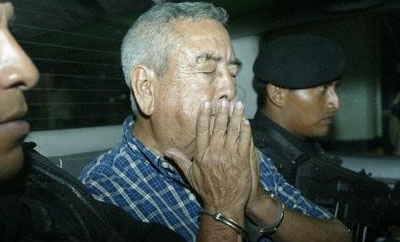Guatemala’s President Otto Perez has approved an extradition request from the United States for drug trafficker Waldemar Lorenzana, though the long delayed process underscores the difficulties in bringing major Guatemalan criminals to justice.
Exactly one year and seven months after a Guatemalan criminal court approved a United States’ extradition request for the leader of the Lorenzanas drug trafficking clan, Perez and other government officials ratified the decision for him to be extradited to face trial for trafficking cocaine into the United States between 1999 and 2003, reported Prensa Libre.
According to the New Jersey and New York courts, the Lorenzanas clan was the intermediary between Colombian gangs and Mexico’s Sinaloa Cartel and had ties to the drug trafficking network run by Guatemalan Otto Herrera Garcia, who was considered a key Sinaloa Cartel ally in Guatemala and is currently imprisoned in the United States.
InSight Crime Analysis
Despite being a US ally, extradition to the United States from Guatemala has never been a smooth process, and Lorenzana’s case is no exception. Notably, Otto Herrera was caught in Colombia, making his extradition much easier.
SEE MORE: Coverage of Extradition
Lorenzana has delayed his extradition through use of legal loopholes, and may well also have benefited from Guatemala’s weak and corrupt judicial system.
The lack of political will from Guatemalan authorities is reflected in the fact that Lorenzana, like other extradited criminals in the past, faces no charges against him in his own country. Meanwhile, his family continues to operate more than a dozen legitimate businesses in Guatemala, through which illicit profits are likely laundered.
The Lorenzanas are one of Guatemala’s most established and recognized trafficking organizations, with influence stretching throughout the western states of Izapal and Zacapa. The group is known to have high-level political connections, which likely aided Lorenzana’s quick release from prison in 2008 after being arrested for weapons possession. His recapture in 2011 followed intense pressure from the United States.
Nevertheless, delayed as it might be, the fact Lorenzana is finally going to face extradition and likely imprisonment in the United States still represents a success. While his organization may continue to operate, he will be cut off from having any hand in its running and the possibility of escape will be greatly reduced.
Lorenzana may also provide important information in exchange for a more lenient sentence, meaning further law enforcement actions against his and other trafficking groups remains a possibility for the near future.

